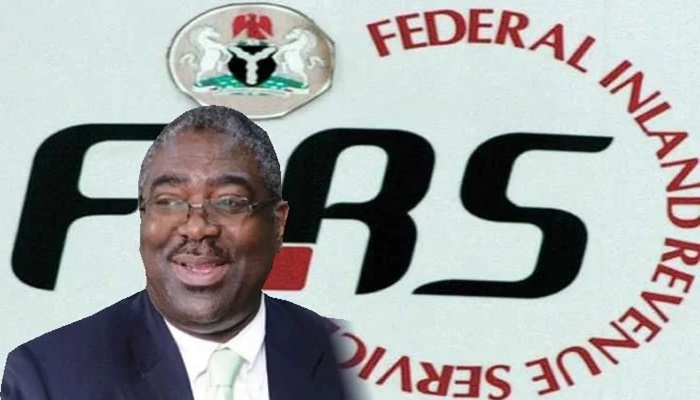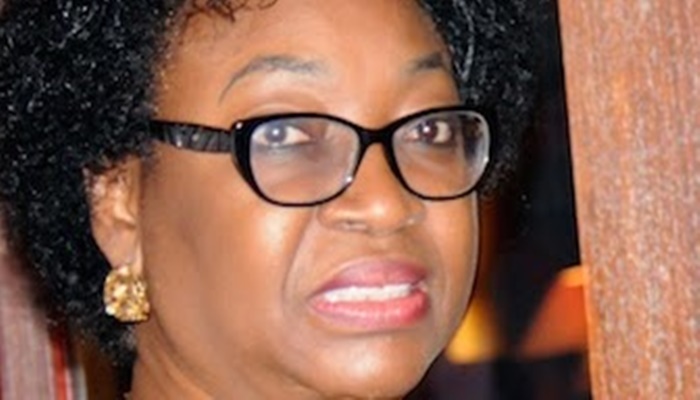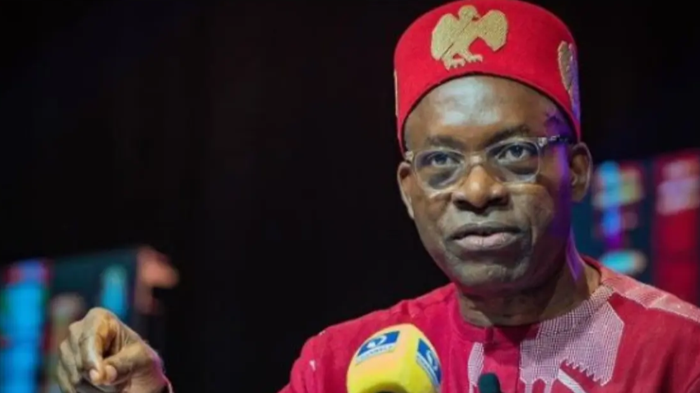
The Federal Inland Revenue Service ( FIRS ) said it collected a total of N4.03 trillion in 2017, representing 82.38 per cent of government set target of N4.89 trillion for the year.
A statement signed by Wahab Gbadamosi, Head, Communications and Servicom Department of the Service said “FIRS’ collection of N4.03 trillion is N720 billion (22%) more than the 2016 total collection figure of N3.305 trillion. The 2017 collection performance exceeded the 2016 collection performance of 78.75%.”
Executive Chairman of FIRS, Mr. Tunde Fowler was quoted to have said “with the support of the National Assembly, and that of other stakeholders, FIRS was able to collect over N4 trillion in 2017. This is an increase of over 20 per cent relative to our collection in 2016. We are hopeful that going forward, FIRS will be able to fund this country through taxation.
Going back memory lane, the FIRS Chairman recalled that when he was the Lagos Internal Revenue Service, LIRS Executive Chairman, the Oba of Lagos played an important role in tax collection. Apart from supporting LIRS morally, Fowler recalled that Oba Akiolu mandated the White cap chiefs to accompany LIRS officials to key markets and most parts of Lagos to sensitise the people on tax collection.
The FIRS Chairman shed light on FIRS’ collection in 2017: “we all recall that beginning from the second half of 2014, there has been a sustained decline in the global prices of oil. Oil Revenue Generated by FIRS in 2014 – 2.45 Trillion; Oil Revenue Generated in 2015 – N1.29 Trillion; FIRS Oil Revenue Generated in 2016 – N1.16 Trillion; FIRS Oil Revenue Generated in 2017 – N1.52 Trillion.”
This trend he said had adverse effect on the ability of oil dependent countries to meet their development objectives. “For us in Nigeria, the decline in receipts from oil revenue and the concomitant decline in accruals to States from the Federation Account has placed many States in a financial quandary to the point where basic obligations such as the payment of employee wages has become a perennial challenge. This is not the first time Nigeria will experience economic slow-down as a result of fluctuations in global oil prices.”
Fowler noted that the FIRS under his watch “hopes to ensure that we act differently this time around by looking beyond oil as the mainstay of our economy. By putting our hands together in contributing to our set goal, I am confident that we will surpass our past results and we’ll be well on our way to the future we hope to achieve.”
Fowler noted that though collection increased by 20 per cent relative to 2016, the Cost of Collection went down to 2.49 per cent in 2017 relative to the 2.60 per cent cost of collection in 2016 and 2.62 in 2015. This, the FIRS Chairman noted, attests to the growing efficiency in collection by the Service and to which the embrace of Information, Communication and Technology (ICT) tools contributed.
On his part, the Oba of Lagos noted that 60 or 70 per cent of FIRS collection comes from Lagos, to this end he said he will be sending a letter to Senate President Bukola Saraki to draw his attention to the 1851 treaty, which the colonial government signed with Oba Akintoye: that three per cent of all taxes collected in Lagos will go to the Oba, while 2 per cent of all exports will go to Oba Akintoye. “While I am not asking that this be paid to me now, it could be paid to the Lagos State Government”.
The Oba who said he lives by example stated that he pays as much as N350 million in tax every year.
Nigeria, he said, now needs good governance that will deliver development to the people. “FIRS has collected N4 trillion and they will collect more in the futures. The legacy that Tunde Fowler has made in Lagos is still felt but you have more work to do,
Lagos does not discriminate against anybody just as the state will not accept any injustice from any quarters.”
He enjoined Senators and members of the House of Reps to dialogue with and give, President Muhammadu Buhari a chance as he loves Nigeria. He also called on the federal parliamentarians to support the anti-graft war by confirming the Economic and Financial Commission Chairman, Ibrahim Magu. Nigeria, the monarch assured will not break.
The FIRS contributed N2.78 trillion to the Federation Accounts. Representing 99.5% of the target for 2017 (7.5% higher than 2016 performance).
An analysis of the collection performance indicates that non-oil accounted for 63% while oil tax accounted for 38% of the total collection. Stamp Duty recorded the most increase in performance with 94%.
The achievements recorded by the FIRS from the administrative and operational initiatives introduced by the Executive Chairman, Tunde Fowler in 2015 and 2016 were designed to reposition the agency.
The 2018 Ease of Doing Business report, released by the World Bank Group late last year, shows that Nigeria moved up 11 places in terms of the ease of paying taxes. This contributed to Nigeria’s movement by 24 points/places in the (from 169th to 124th position in the Ease of Doing business globally.
The initiatives which directly impacted on business owners, implemented by the Service with the support of the Presidential Enabling Business Environment Council ( PEBEC ) contributed to Nigeria’s upward movement in global ease of doing business ranking.






